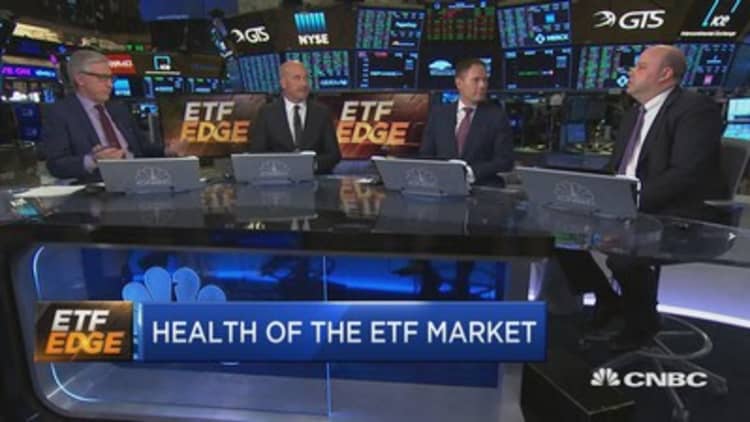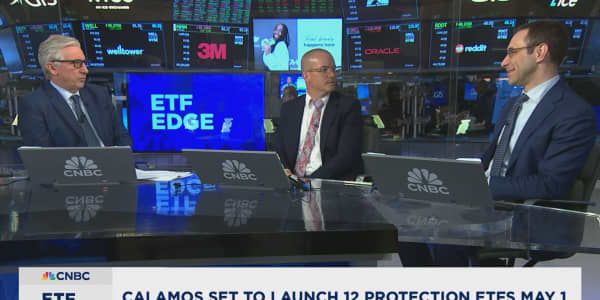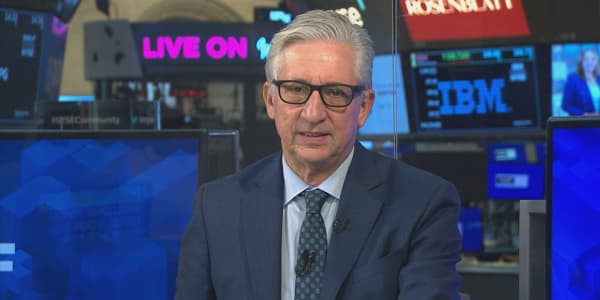
The ETF market is encountering some growing pains.
Nearly a quarter of U.S. exchange-traded funds have closed in the last five years despite a 90% rise in their overall assets under management, according to research firm CFRA. When an ETF closes, investors typically get 30 days in which they can rotate out of the fund or face selling out at the liquidation price.
Of the 1,662 ETFs that were listed on U.S. exchanges as of Dec. 31, 2014, 399 have closed, a 24% reduction in the number of ETFs on the market, CFRA reports. This happened as the biggest ETFs just kept getting bigger: Now, just 100 funds account for 83% of total asset growth in the ETF space, the research firm said.
"Asset managers have seen the money going in. They're launching products," Todd Rosenbluth, senior director of ETF and mutual fund research at CFRA, told CNBC's "ETF Edge" on Monday. "After a couple of years, if the products don't reach $100 million, which is a nice threshold — 89% of the closures had less than $100 million in assets under management — you'll see closures."
But industry leaders including Rosenbluth say the trend is indicative of a healthy, expanding corner of the market.
"Invesco made a couple of acquisitions. They took a look at their product lineup. Some of those strategies no longer made sense under the Invesco brand, and so we saw 20 or so ETFs that closed in early 2019. That's just healthy," Rosenbluth said. "That's a maturing part of the industry. But we're also seeing money going into the largest of the products and the cheapest of the products. That trend continues."
That has also benefited some of the market's top ETF providers. Together, iShares, Vanguard and State Street Global Advisors' SPDR branch account for roughly 81% of the ETF market's assets under management, according to ETFGI.
"Ultimately, ... this is all client-driven," Dan Draper, managing director and global head of ETFs at Invesco, told "ETF Edge" in the same interview. "We want to make sure we have the best solutions run properly for our clients broadly. But the ETF vehicle is also a very innovative wrapper."
In the ETF wrapper, giant issuers like Invesco can try innovative solutions more easily and with less red tape than in the mutual fund sphere, which can bring about both benefits and pitfalls, Draper said.
"This is also a message to investors that for ETF issuers, it can be low barriers to entry, but a very high barrier to success," Draper said. "So, being with larger providers that have all the infrastructure that can really support the products long term is crucial."






